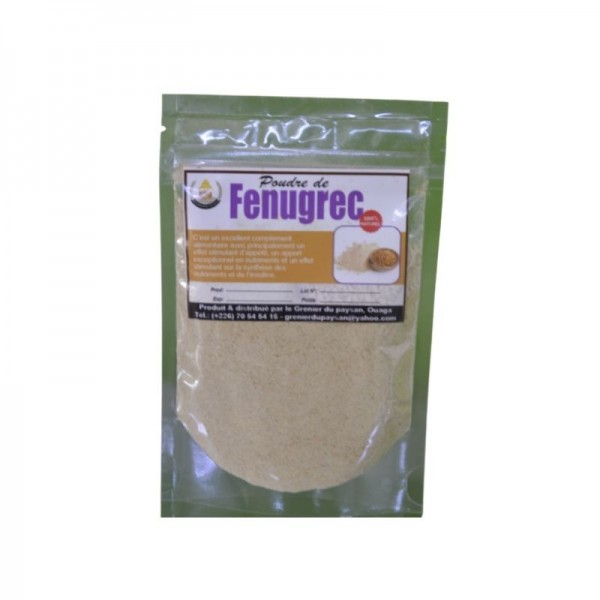



Fenugreek has anti-inflammatory, stimulating and soothing virtues, with the ability to open the appetite, promoting, among other things, weight gain, or regulating blood sugar.
Fenugreek has anti-inflammatory, stimulating and soothing virtues, with the ability to open the appetite, promoting, among other things, weight gain, or regulating blood sugar. In summary, fenugreek seed is considered, in traditional medicine, as:
Action on weight
Fenugreek seed is, in fact, widely used to gain weight, directly, by its composition rich in carbohydrates and proteins, and indirectly, by its property to open the appetite and therefore to eat more.
It is therefore often prescribed in the treatment of thinness, to stimulate the appetite of people on medication, suffering from appetite-suppressing diseases, or the elderly.
Action on digestion
An appetite opener, fenugreek allows better absorption of nutrients and facilitates the digestion of food. Thanks to its mucilaginous effect, the seed protects the intestinal mucosa from irritation and inflammation, thus relieving gastritis, diarrhea, dysentery, indigestion, peptic ulcers, etc.
Mucilage, not absorbed by the body, increases the weight and volume of stools, for an effective laxative effect in constipation.
Action on blood sugar
Fenugreek slows down and optimizes the absorption of carbohydrates, and inhibits glucose transport, in addition it helps delay gastric emptying. At the same time, it improves the efficiency of insulin in the blood, and the amino acids 4-hydroxy-isoleucine, contained in the seed, would have a protective effect on the liver and stimulating the production of insulin.
Thus, fenugreek is beneficial for people suffering from type 2 diabetes without the annoying side effects caused by certain drugs of the pharmaceutical industry, but be careful, before that, consult your doctor and do not combine fenugreek with any treatment for it. diabetes.
A clinical study was carried out on patients with type 2 diabetes: one group received 1g of fenugreek powder daily, and another, a placebo. After two months, the fenugreek group showed better blood sugar control and better insulin sensitivity compared to placebo. Incidentally, there was a significant drop in triglyceride levels and an increase in "good" cholesterol.
Stimulating effect of the immune system
Thanks to its composition, fenugreek stimulates the immune system, it also has expectorant, antifungal and antiparasitic properties. Thus, it allows the body to protect itself against infections and bacterial, microbial and viral ailments: winter ailments, flu, colds, sinusitis, asthma, but also, in Ayurvedic medicine, as a treatment against vaginal infections. , urinary tract infections and infections of the uterus.
Fenugreek is often used to help treat coughs, sore throats, and even bronchitis, usually by gargling with a mixture of half a teaspoon and a glass of water.
Action on the cardiovascular system
Fenugreek has beneficial effects on the entire cardiovascular system:
All these properties mean that fenugreek helps prevent a large majority of cardiovascular diseases.
Action sur le lait maternel
Fenugreek has always been used to increase the production and quality of breast milk in breastfeeding women, especially in the first few weeks, as well as as a nutritional supplement necessary for a mother's good health for effective breastfeeding.
The little brown seed improves the taste of breast milk and its nutritional composition.
According to some studies, fenugreek owes this effect to its content of natural phytoestrogens: steroidal saponins.
How to do ? For a galactogenic effect, it is advisable to consume 3 to 4 g of fenugreek per day, throughout the day. It can be consumed as an infusion, in the kitchen, or as capsules.
A study showed that consuming 3 fenugreek capsules daily could increase breast milk production by up to 500% in less than 72 hours.
However, ask your doctor for advice before use.
Effect on weight gain
One of the most common uses of fenugreek is for weight gain, the plant has always been used to whet the appetite and promote healthy, natural weight gain. Rich in saponins, fenugreek stimulates the feeling of hunger and promotes digestion, which makes you want to eat more.
Many people are affected, for example people suffering from: anorexia, diseases causing loss of appetite, depression, stress or anxiety, certain brain diseases, alcoholism and drug addiction, or simply women who want to gain weight for concern aesthetics.
Data sheet